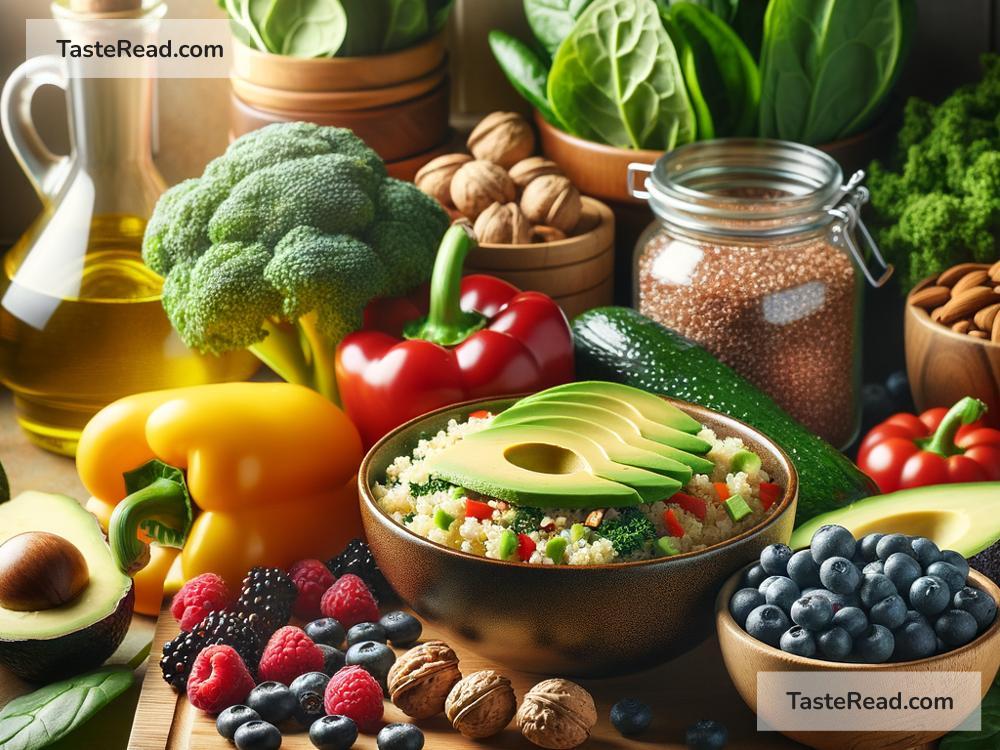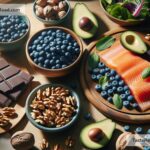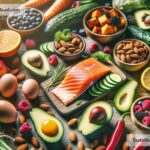Foods That Improve Mental Resilience
Life can be tough. We all face challenges, stress, and moments of doubt. But one powerful way to stay strong and bounce back is by focusing on what we eat. Food is fuel, not just for our bodies but for our brains as well. There are certain types of food that can help improve mental resilience, keeping our minds sharp, calm, and strong in the face of adversity. In this article, we’ll explore some of these foods and how they work. The best part? They’re simple to find and delicious!
What Is Mental Resilience?
Before diving into the foods, let’s understand what mental resilience is. Mental resilience is the ability to cope with stress, recover from setbacks, and adapt to challenges. It’s not about avoiding problems; it’s about facing them with strength and determination. Building mental resilience requires sleep, exercise, a positive mindset—and yes, the right nutrition.
What we eat can impact how we think, feel, and manage stress. Certain foods improve brain health, stabilize mood, and even boost your ability to think clearly under pressure. Let’s get started with the foods that matter most.
1. Oily Fish: Feed Your Brain
Oily fish like salmon, mackerel, and sardines are rich in omega-3 fatty acids, which are essential for brain health. Omega-3s help protect your brain cells, improve memory, and even reduce symptoms of depression and anxiety. These healthy fats lower inflammation in the brain and make it easier to stay calm during stressful situations.
If fresh fish isn’t available, don’t worry—canned fish like tuna or sardines are affordable and full of omega-3 goodness. You can also try plant-based alternatives like flaxseeds, chia seeds, and walnuts.
2. Dark Chocolate: A Sweet Treat for Your Mood
Good news for chocolate lovers! Dark chocolate is not only tasty but also packed with nutrients that support mental resilience. It’s rich in antioxidants like flavonoids, which improve blood flow to the brain and boost mood. Dark chocolate also helps the body produce serotonin, the “feel-good” hormone that fights off feelings of sadness.
Make sure to choose chocolate that’s at least 70% cocoa to gain the most benefits—and enjoy it in moderation.
3. Whole Grains: Steady Energy for the Mind
Whole grains like oats, quinoa, and brown rice provide slow-releasing carbohydrates that keep your energy levels stable throughout the day. This is important because mental resilience often requires focus and stamina, especially during stressful situations.
Whole grains also contain vitamins like B6, which aids in the production of neurotransmitters that regulate your mood. So instead of white bread or sugary cereals, go for nourishing whole grains to stay mentally sharp.
4. Leafy Green Vegetables: Nature’s Brain Boosters
Spinach, kale, and Swiss chard are loaded with vitamins, minerals, and antioxidants that boost brain health. These vegetables are rich in magnesium, which helps control stress hormones like cortisol. They also contain folate, a nutrient that can lower the risk of depression and keep your mood balanced.
You can add leafy greens to soups, salads, smoothies, or stir-fries. If fresh greens aren’t available, frozen ones work just as well!
5. Berries: Tiny but Mighty
Berries like blueberries, strawberries, and blackberries are full of antioxidants that protect your brain from stress and aging. These little fruits are known for their ability to improve memory and focus, helping you tackle life’s challenges head-on.
Berries are also rich in vitamin C, which lowers stress and supports the immune system, keeping you both mentally and physically resilient. Snack on them fresh or toss them into breakfast bowls, yogurt, or smoothies.
6. Nuts and Seeds: Small Snacks, Big Impact
Nuts and seeds are packed with healthy fats, protein, and vitamins that promote brain health. Almonds, walnuts, pumpkin seeds, and sunflower seeds are rich in magnesium, zinc, and vitamin E, all of which play a role in protecting your brain and managing stress.
As a bonus, nuts and seeds are super portable. Keep a small bag handy to snack on during busy days when you need an energy and mood boost.
7. Fermented Foods: Gut Health Equals Mental Health
Did you know that your gut and brain are connected? Fermented foods like yogurt, kimchi, and kefir contain probiotics, the good bacteria that keep your digestive system healthy. A healthy gut supports mental resilience by reducing inflammation and improving mood.
If you’re not a fan of fermented foods, you can also try probiotic supplements or eat more fiber-rich foods, as these help maintain a healthy gut.
8. Herbal Teas: Calm in a Cup
Certain herbal teas can work wonders for your mental resilience. Chamomile tea and green tea contain compounds that help relax the mind and lower anxiety. Green tea also has L-theanine, an amino acid that promotes calmness and focus.
Sipping on tea is a simple way to take a break and reset your mind during a stressful day.
Conclusion: Small Changes, Big Impact
Mental resilience is a skill, and just like any skill, it can be strengthened. While food alone won’t make you immune to stress, eating the right nutrients can give your brain the support it needs to stay strong. Incorporating foods like oily fish, dark chocolate, whole grains, leafy greens, berries, nuts, and fermented foods can make a real difference in how you feel and cope with challenges.
Remember, there’s no need to overhaul your diet overnight. Start small—swap chips for nuts, white rice for quinoa, or sugary snacks for berries. Over time, these small changes can build a powerful foundation for both your physical and mental resilience. Choose foods that boost your brain and help you thrive, no matter what life throws your way!


